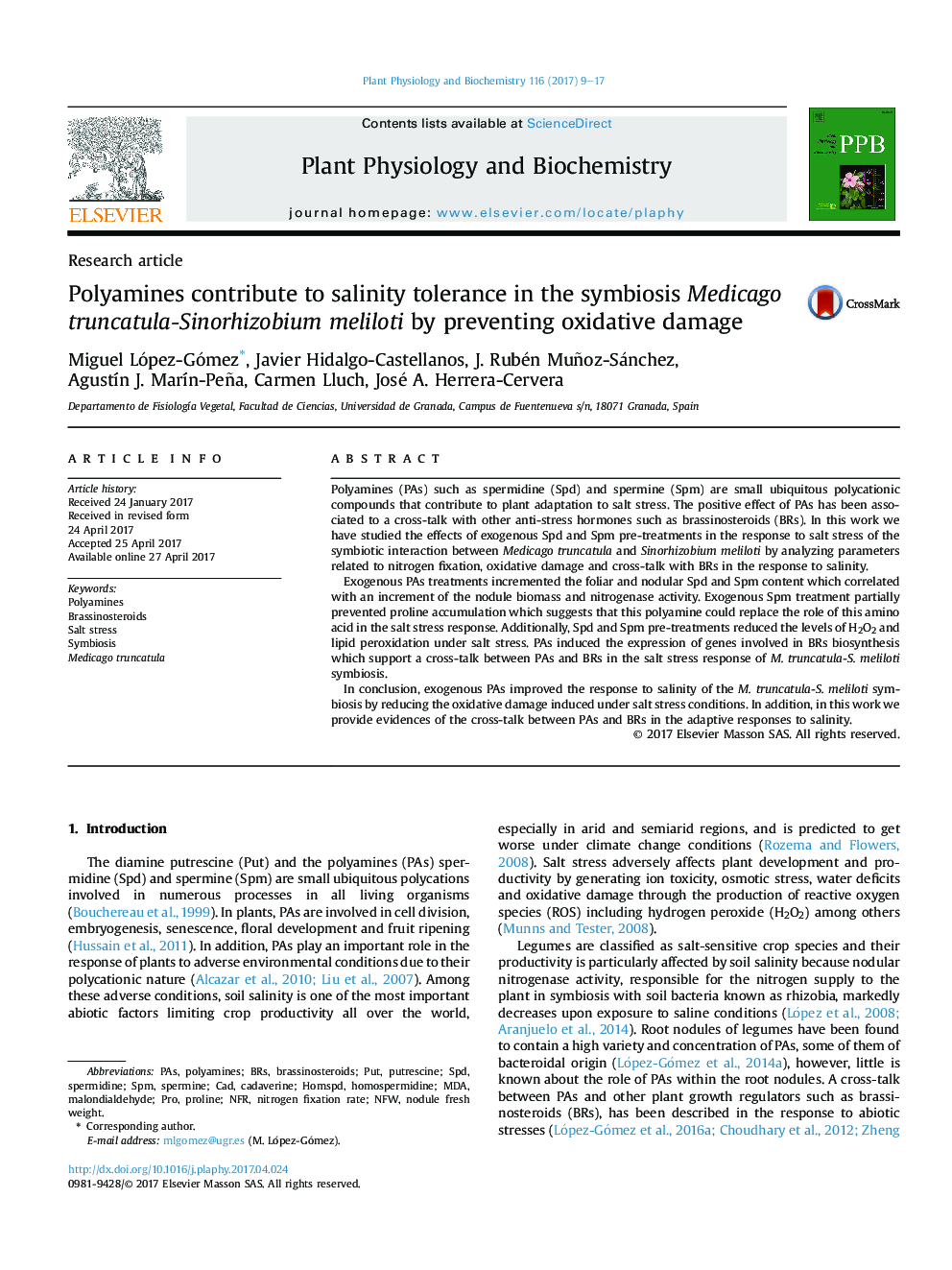| کد مقاله | کد نشریه | سال انتشار | مقاله انگلیسی | نسخه تمام متن |
|---|---|---|---|---|
| 5515350 | 1541905 | 2017 | 9 صفحه PDF | دانلود رایگان |

- Exogenous polyamines increment nodule biomass and nitrogenase activity in the symbiosis M. truncatula-S. meliloti.
- Spermidine and spermine pre-treatments reduce the levels of H2O2 and lipid peroxidation under salt stress.
- Polyamines induce the expression of genes involved in brassinosteroids biosynthesis.
- Polyamines improve the response to salinity of M. truncatula-S. meliloti symbiosis by reducing the oxidative damage.
Polyamines (PAs) such as spermidine (Spd) and spermine (Spm) are small ubiquitous polycationic compounds that contribute to plant adaptation to salt stress. The positive effect of PAs has been associated to a cross-talk with other anti-stress hormones such as brassinosteroids (BRs). In this work we have studied the effects of exogenous Spd and Spm pre-treatments in the response to salt stress of the symbiotic interaction between Medicago truncatula and Sinorhizobium meliloti by analyzing parameters related to nitrogen fixation, oxidative damage and cross-talk with BRs in the response to salinity.Exogenous PAs treatments incremented the foliar and nodular Spd and Spm content which correlated with an increment of the nodule biomass and nitrogenase activity. Exogenous Spm treatment partially prevented proline accumulation which suggests that this polyamine could replace the role of this amino acid in the salt stress response. Additionally, Spd and Spm pre-treatments reduced the levels of H2O2 and lipid peroxidation under salt stress. PAs induced the expression of genes involved in BRs biosynthesis which support a cross-talk between PAs and BRs in the salt stress response of M. truncatula-S. meliloti symbiosis.In conclusion, exogenous PAs improved the response to salinity of the M. truncatula-S. meliloti symbiosis by reducing the oxidative damage induced under salt stress conditions. In addition, in this work we provide evidences of the cross-talk between PAs and BRs in the adaptive responses to salinity.
Journal: Plant Physiology and Biochemistry - Volume 116, July 2017, Pages 9-17